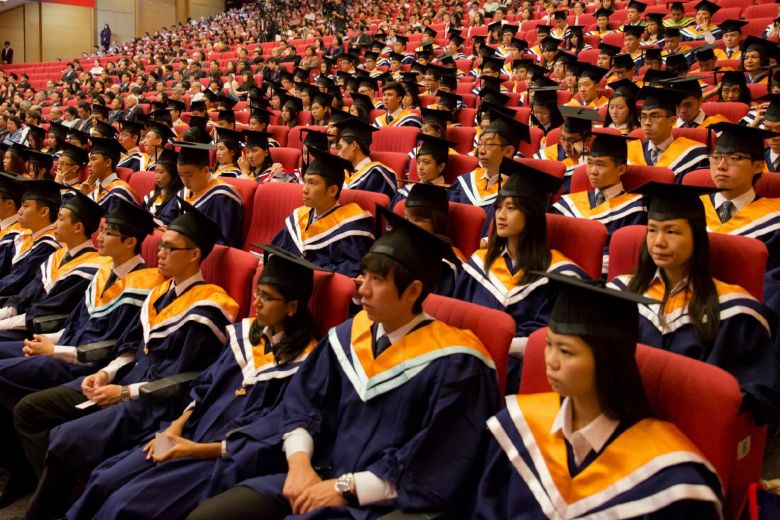The Nanyang Technological University (NTU) is the second public institution here to rename its honours degrees to better reflect the quality of its students.
All undergraduates – except those studying medicine – graduating from January will be awarded degrees according to a new nomenclature, regardless of intake year.
The current First Class Honours will be known as Honours (Highest Distinction), Second Class (Upper) Honours as Honours (Distinction), and Second Class (Lower) Honours as Honours (Merit). A Third Class Honours or a Pass with Merit will become Honours, while the Pass qualification – for those who do not qualify for honours – will remain.
These revised classifications – used by major American universities like Stanford and the University of California, Berkeley – were first adopted by the National University of Singapore (NUS). NUS had announced in 2014 that it was doing so to give due recognition to students’ academic accomplishments. Its first batch of students graduated with degrees using the new nomenclature last year.
In an e-mail to students on Thursday, NTU deputy provost for education Kam Chan Hin said the new nomenclature is meant to “reflect the rising quality of student intake over the years”. “(It) will better reflect and recognise the academic accomplishments of our graduates in an increasingly competitive global employment market,” he said.
He noted that the academic standards and cumulative grade point average (CGPA) scores required to achieve each degree classification will not change. A CGPA of 4.5 (out of 5) is still needed for an Honours (Highest Distinction) degree, a score of 4 will qualify for Honours (Distinction), and 3.5 will translate into an Honours (Merit).
Human resource experts like Mr David Leong, managing director of PeopleWorldwide Consulting, said the renaming of degree classifications is “a feel-good factor… to make the distinctions between the classes less prominent”.
“But the quality of graduates doesn’t change,” he added.
Fourth-year NTU sports science and management student Alvina Koh, 22, agreed. “I appreciate the effort to try and reduce the ‘third class’ image among students and employers.”
But she said: “It may initially sound better to employers when they are looking for applicants, but over time, as they get more familiar with the system, they might realise a graduate with Honours is the equivalent of a Third Class.”
Other institutions here like the Singapore Management University adopt the Latin honours system used by US universities such as Harvard and Yale. It uses nomenclature such as summa cum laude and magna cum laude. The Singapore University of Social Sciences uses the British honours system of first class, second-class upper, second-class lower and third class.
Mr Leong said that as Singapore moves towards a more skills-based education, the distinctions within degrees should matter less.
“Beyond the first job and as you progress in life, employers are not going to ask you what kind of honours you have. They are looking for work experience and skills.”
Article and Photo from Straits Times


